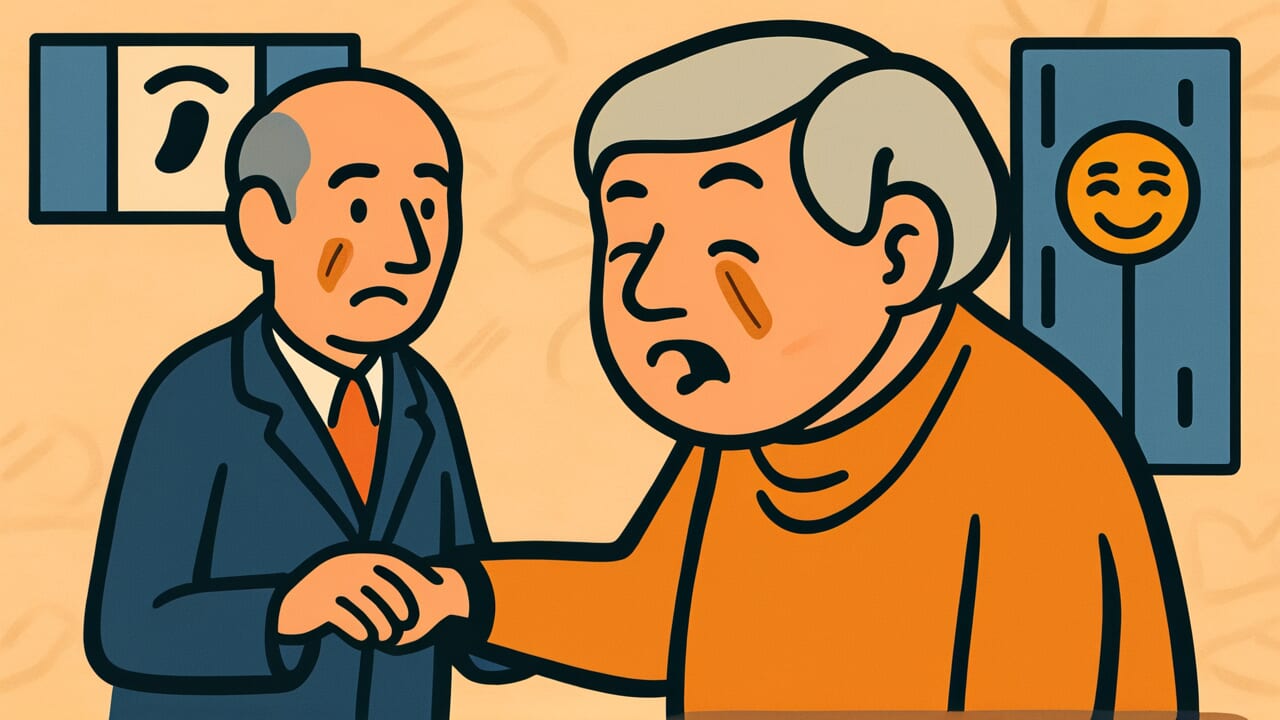How to Read “Age may come but the heart does not age”
Toshi wa yoredomo kokoro wa yoranu
Meaning of “Age may come but the heart does not age”
“Age may come but the heart does not age” means that even as we grow older and our bodies age, our hearts and minds don’t have to grow old. We can keep our spirits young and vibrant.
This proverb is used to praise elderly people who stay curious and keep trying new things. It also encourages people who are giving up on something just because of their age.
Physical decline comes to everyone. But this proverb shows that mental youthfulness is something completely different. The desire to keep learning, a playful spirit, flexible thinking, and a positive attitude can all be maintained through your own will.
Today, lifelong learning and social participation by older adults are getting more attention. This makes the message of this proverb more important than ever.
It teaches us not to be trapped by the number of our age. We should enjoy life with a youthful heart no matter how old we are.
Origin and Etymology
There are no clear written records about the origin of this proverb. However, we can learn interesting things from how the words are structured.
The word “yoru” has two meanings. It means to physically approach something, and it also means the passage of time. “Toshi ga yoru” is a traditional Japanese expression meaning to grow older or to age.
“Kokoro ga yoru” means the heart approaches old age. In other words, it means the spirit becomes old too.
This contrasting structure reflects Japanese views on aging from before the Edo period. People back then observed that physical aging and mental youthfulness don’t always go together.
The negative form “yoranu” is especially noteworthy. It’s not just describing a fact. It contains an active message: “your heart doesn’t need to grow old.”
Aging is an unavoidable natural process. But mental youthfulness can be preserved through your own will. This proverb contains this positive view of life.
This expression reflects Japanese cultural values. Japan has always respected longevity while also cherishing the spirit of staying active throughout life.
Usage Examples
- My grandfather is over eighty and uses his smartphone skillfully. He truly embodies “Age may come but the heart does not age.”
- Watching Mr. Tanaka enter university after retirement reminds me of the saying “Age may come but the heart does not age.”
Universal Wisdom
The proverb “Age may come but the heart does not age” has been passed down because it contains deep insight into human duality. Our existence consists of two aspects: the changing body and the spirit that can exist independently from it.
The universal truth this proverb shows is simple. Human dignity is not determined by age or physical condition.
Throughout history, humanity has always faced the unavoidable reality of aging. But at the same time, people have observed individuals who continue to shine despite their years.
Why do people relate to this proverb? Because deep down, everyone wants to keep their sense of self and joy in living. The body changes with time, but curiosity, passion, and the joy of learning can be preserved through one’s own will.
This saying has been passed down for so long because it’s more than just encouragement. It’s a message of hope about human potential.
Inner freedom that isn’t controlled by the external condition of age is one of humanity’s most precious qualities. Our ancestors understood that true youth is a state of mind.
When AI Hears This
When brain scientists examine elderly brains, they find something interesting. The number of brain cells has definitely decreased, yet some people can still learn new languages or start playing instruments. This happens because of “neural rewiring ability,” also called neuroplasticity.
Think of it like a computer. Even if CPU processing speed drops, you can still do new things by optimizing the software. In fact, research on London taxi drivers showed something remarkable.
By continuing to memorize complex routes, their hippocampus (the memory center) kept growing even in old age. Despite the “hardware limitations” of physical brain aging, “software updates” are still possible depending on how you use it.
Even more interesting is this discovery. As the brain ages, processing speed drops, but judgment based on experience actually improves. Young brains excel at high-speed processing. Older brains are better at integrating multiple pieces of information to see the essence.
In other words, declining hardware performance is compensated by refined software.
This proverb recognized that the body (physical system) and the mind (information processing system) each have independent update cycles. Brain cells may decrease, but their connection patterns can be rewritten until death. This is the scientific identity of “the heart does not age.”
Lessons for Today
This proverb teaches us that we always hold the reins of our lives. We can’t avoid growing older, but we can choose how we accept it and how we live.
Modern society has many age-based divisions and restrictions. But what really matters isn’t the number on your ID. It’s how open your heart remains.
Being interested in new technology, learning unfamiliar fields, talking with younger generations—these are all concrete ways to keep your heart young.
What’s especially important is not casually saying “I’m too old for that.” Those words can become a magic spell that closes off your possibilities.
Instead, try thinking “precisely because I’ve aged.” You have the treasure of experience while still being able to try new things. Isn’t that a wonderful privilege?
The youthfulness of your heart is something you decide for yourself. Why not start something new tomorrow? Or better yet, today? That one step is the secret to keeping your heart young.



Comments